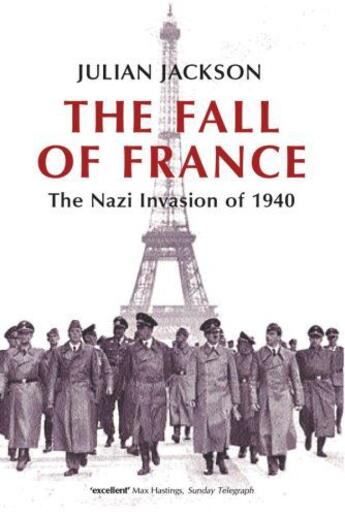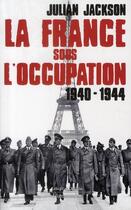-
Nombre de pages : (-)
-
Collection :
(-)
-
Genre :
(-)
-
Thème :
Non attribué
-
Prix littéraire(s) :
(-)
Résumé:
On 16 May 1940 an emergency meeting of the French High Command was called at the Quai d'Orsay in Paris. The German army had broken through the French lines on the River Meuse at Sedan and elsewhere, only five days after launching their attack. Churchill, who had been telephoned by Prime Minister... Voir plus
On 16 May 1940 an emergency meeting of the French High Command was called at the Quai d'Orsay in Paris. The German army had broken through the French lines on the River Meuse at Sedan and elsewhere, only five days after launching their attack. Churchill, who had been telephoned by Prime Minister Reynaud the previous evening to be told that the French were beaten, rushed to Paris to meet the French leaders. The mood in the meeting was one of panic and despair; there was talk of evacuating Paris. Churchill asked Gamelin, the French Commander in Chief, 'Where is the strategic reserve?' 'There is none,' replied Gamelin.
This exciting book by Julian Jackson, a leading historian of twentieth-century France, charts the breathtakingly rapid events that led to the defeat and surrender of one of the greatest bastions of the Western Allies, and thus to a dramatic new phase of the Second World War. The search for scapegoats for the most humiliating military disaster in French history began almost at once: were miscalculations by military leaders to blame, or was this an indictment of an entire nation?
Using eyewitness accounts, memoirs, and diaries, Julian Jackson recreates, in gripping detail, the intense atmosphere and dramatic events of these six weeks in 1940, unravelling the historical evidence to produce a fresh answer to the perennial question of whether the fall of France was inevitable.
Donner votre avis
















